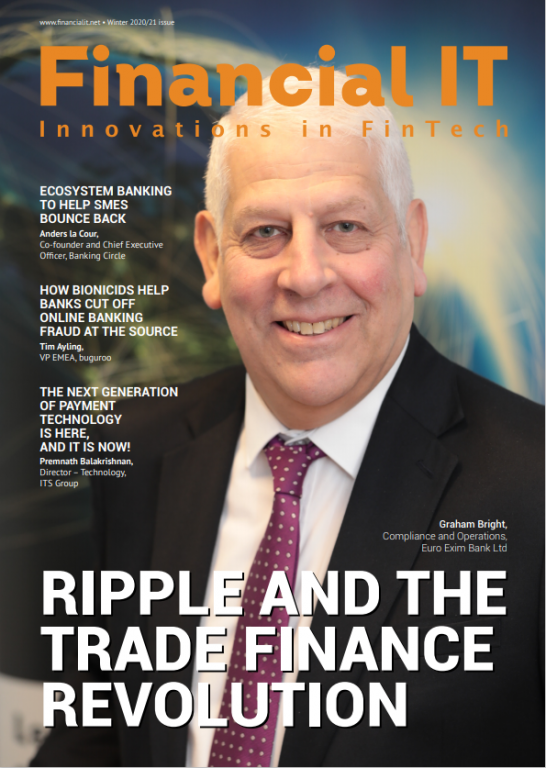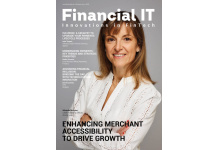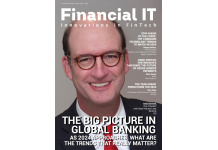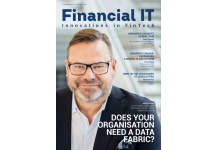Winter Issue 2020/21

- 24 Nov, 2020 01:00 am
Three big calls for 2021
Changing trade patterns, changed employment patterns and soaring fines from regulators are big legacies from 2020.
At the intersection of financial services and technology, not all the opportunities are in the spotlight all the time. The same is true of the challenges. In 2016, for instance, numerous contributors to Financial IT were excited about the potential for blockchain. Back then, other observers were worried about the erosion of correspondent banking relationships in many emerging markets.
Blockchain back in the spotlight
Neither blockchain nor correspondent banking were much discussed by our contributors through 2018, 2019 and 2020. In this edition of Financial IT, however, a lead contributor explains how his organisation - a specialist bank - is working with Ripple’s Network to provide digital trade finance solutions to importers and exporters (mainly) in emerging markets. A crucial feature of the trade finance services is that counter-parties’ local currencies are converted into/out of Ripple’s XRP crypto-currency.
This arrangement solves two problems. The liquidity in the market for XRP is enormous, with the result that the currency conversions are cheap and easy: in conventional foreign exchange markets, by contrast, it is often expensive and difficult to convert a currency into or out of US dollars. Secondly, payments relating to international trade have traditionally required access to correspondent banks. However, risk management (including Know Your Client - KYC) issues have caused many international banks to cut relationships with banks in emerging markets. Ripple’s Network essentially performs many of the roles that would otherwise have been carried out by correspondent banks.
For the world’s exporters and importers, 2021 will be a very different year to 2020. In some countries (such as India), governments are actively promoting local manufacturers. To the extent that those manufacturers are sourcing from or selling to other countries, this will have an impact on the patterns of global trade. In any case, volumes will be rising as the global economy recovers from the disruption relating to the Covid-19 pandemic.
One of the big calls - or predictions - that we confidently make for 2021 is that blockchain will play a much more important role than previously in payments and finance supporting global trade.
Virtually free and instant foreign currency payments
In the Sibos 2020 edition of Financial IT, we discussed (among other things) why remote working will remain the norm. We reasoned that any loss of efficiency from not having employees in the same location will be more than offset by the benefits to the employer of the employees’ providing office space for free. In this edition, one of our contributors highlights how 46% of financial services companies are using hybrid cloud technology (i.e. allowing the transfer of data between private and public clouds) to support remote working by employees and contractors. Employers have recognised that remote working is here to stay.
Some of the remote workers will be based in different countries to their employers and will need to be paid in foreign currencies. This edition of Financial IT includes a discussion of P27: due to go active in the coming year, this is an initiative in the Nordic countries which will be the world’s first real-time, cross-border and multi-currency payments platform.
Our second big call is that the surge in cross-border remote working will inspire similar initiatives in other parts of the world: instant and cheap B2C and C2C payments will become much more common in 2021.
RegTech to the fore
In this edition, one of our contributors discusses the soaring costs for financial institutions of non-compliance with KYC and Anti-Money Laundering/ Combating the Finance of Terrorism (AML/CFT) rules. In Europe alone, fines increased from EUR378mn in 2019 to EUR650mn in 2020. These expenses are in addition to losses associated with cyber-crime - a topic covered by another of our contributors. The growth of expenses associated with cyber-security breaches of all kinds is unsustainable. Our third big call for 2021 is that technology will make it much easier for financial institutions to know for certain whom they are really dealing with.
We wish all readers and contributors a prosperous New Year.
Andrew Hutchings, Editor-in-Chief, Financial IT





















